Recruiting: PhD Student, Fall 2025 @ UNC
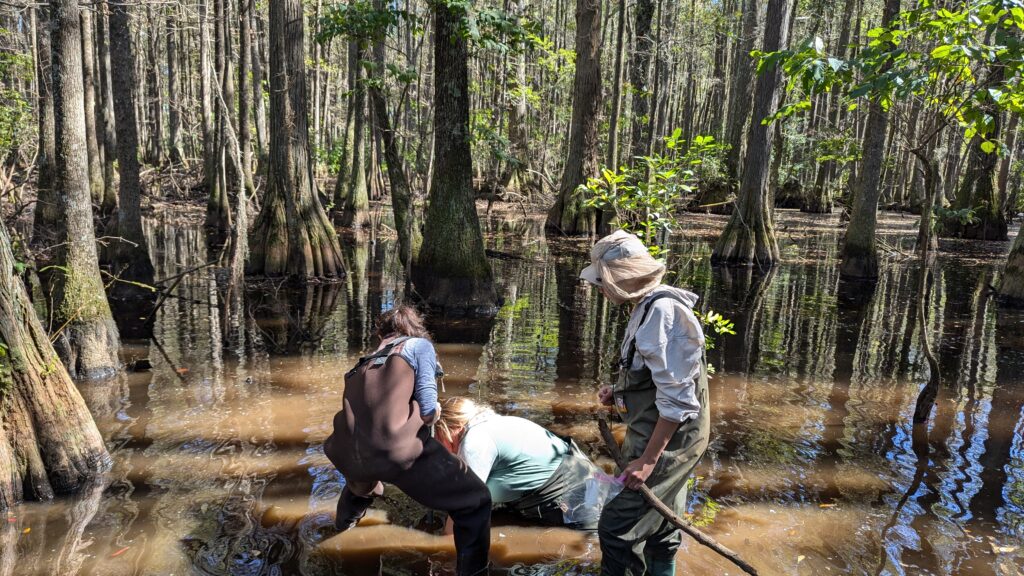
We’re recruiting a PhD student! With Dr. Amanda DelVecchia at UNC-Chapel Hill, we are looking for a student to study methane dyanmics in the isolated wetlands at Ichauway. Projects will include (but not limited to): methanogenesis, methanotrophy, methane emissions, methane in food webs, and upscaling See more details on the Prospective Students page and Dr. […]
Diel Sampling for Nitrogen
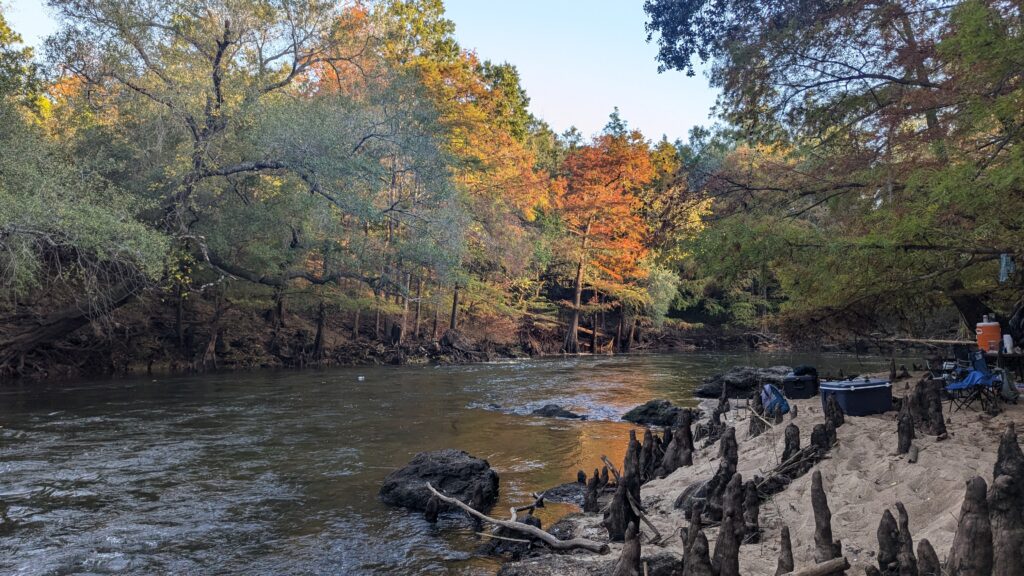
Last week, we were thrilled to host Abagael Pruitt and Ryan Meyer, both PhD students in the Tank Lab at Notre Dame. Like the Jones Center, the Tank lab has research interest in streams and rivers embedded in agricultural landscapes and the interaction of land-use on water quality and biogeochemistry. In this visit, we focused […]
New methods in methane dynamics in isolated wetlands!
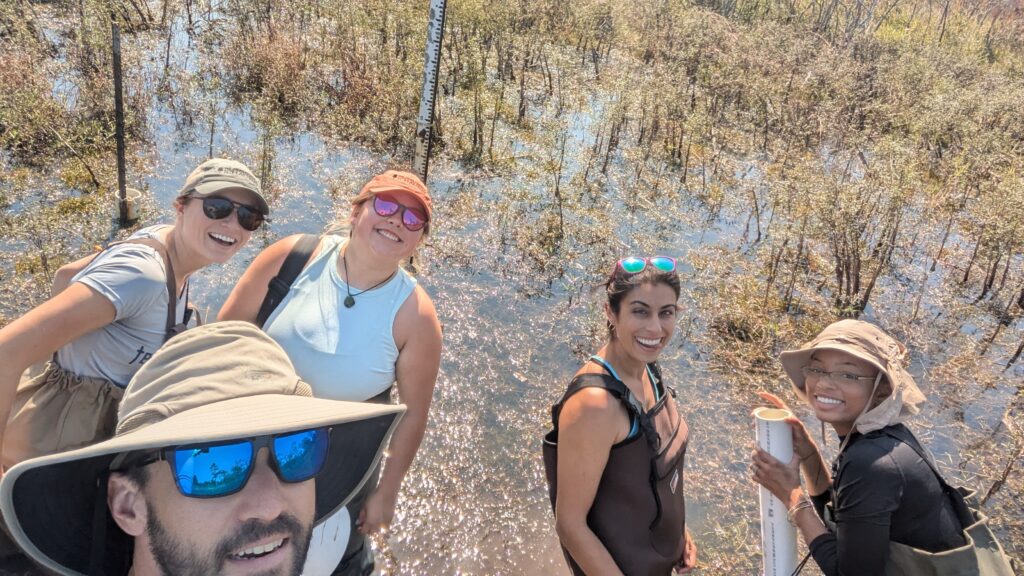
The week of October 14th, we thrilled to host Dr. Amanda DelVecchia, from the Department of Geography at UNC-Chapel Hill. In addition to delivering an excellent Lord of the Rings themed greenhouse gas dynamics seminar on Tuesday afternoon, we focused on developing new methods of measuring methane oxidation and methanogenesis from geographically isolated wetlands at […]
Longleaf Alliance: Lab Studies in Hurricane Ecology

Join the members of the Jones Center Landscape Ecology Lab as we present our latest research at the 15th Biennial Longleaf Conference, taking place from October 7 to 11, 2024, in Miramar Beach, Florida.
Presentations from our lab will focus on hurricane ecology in longleaf pine, considerations for management hurricane risk to longleaf pine ecosystems, and two lab members will debut work on hurricane ecology using dendrochronological and remote sensing techniques
Automatically Number Figures and Supplemental Material in Microsoft Word

I learned to use Word’s built-in cross-referencing functions to streamling captioning figures and tables and referencing them in the text. But I could never find a guide that showed me how to use it for figures both in the main text and the supplemental materials. This guide shows you a trick I learned to number main text figures and supplmental figures separately!
New study: Identifying defects in damaged trees to improve guidance for timber salvage
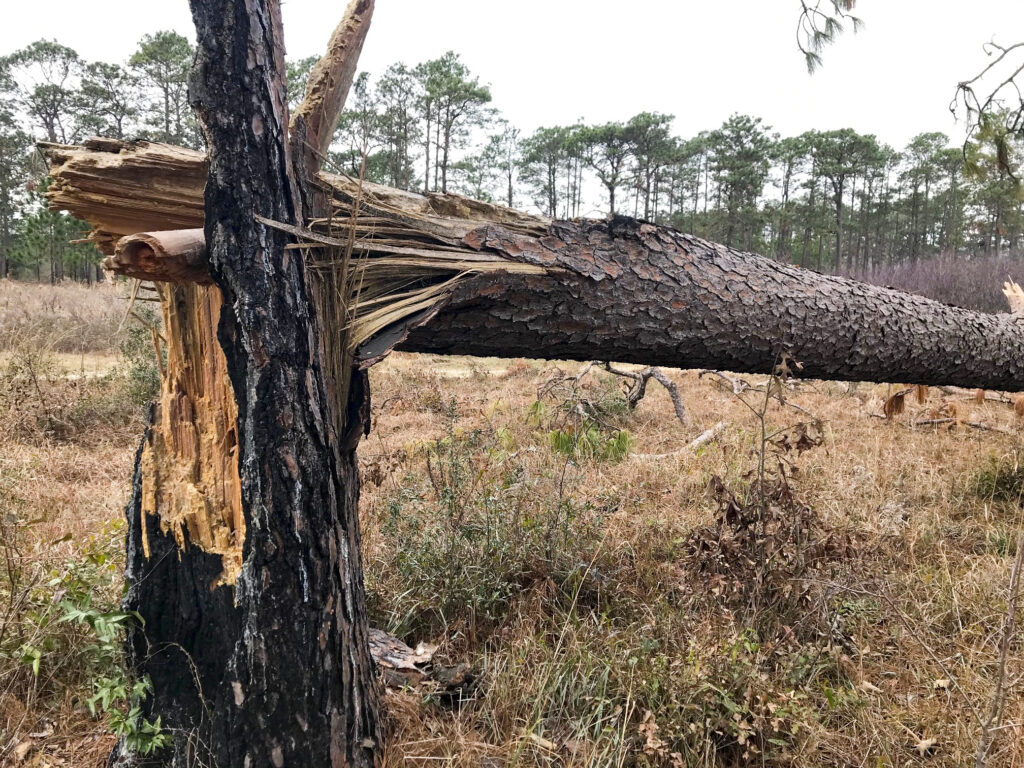
Trees damaged by severe winds experience twisting and snapping that damages useful parts of the tree bole. Visible damage is readily visible on lower portions of damaged trees, but unseen defects can extend further up the bole. Thus it can be difficult for loggers to determine wood quality and merchantability during post-storm timber salvage. We used acoustic measurements to find wood defects and found that traditional guidelines are too conservative. We provide guidance for loggers to help safely harvest substantially more of the bole after severe winds.
New study: Overstory and litter properties drive fuel dynamics
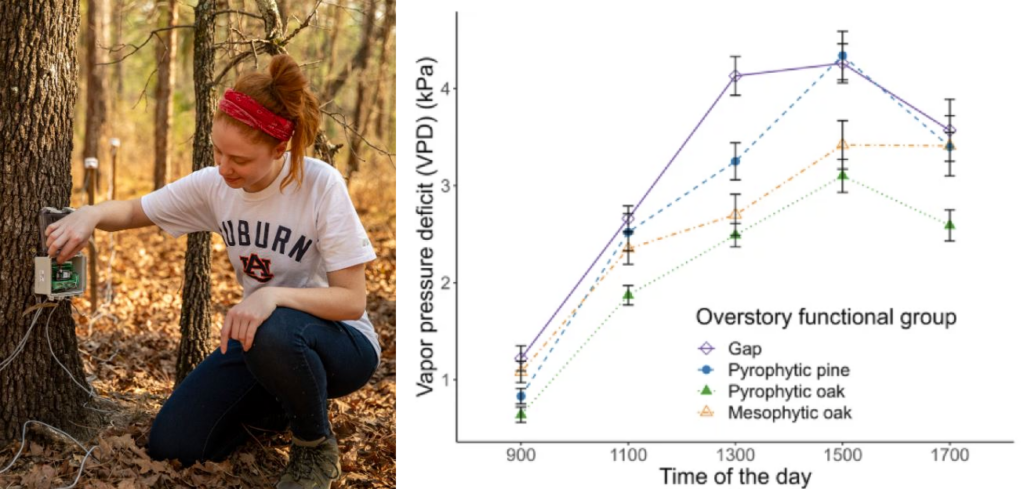
The composition of fire-dependent forests can shift after decades of fire exclusion. Forests can shift to trees with distinct overstory and leaf litter traits that can further suppress fire and make restoration difficult. We compared how leaf litter and overstory properties differed between fire-adapted pines and oaks, and the non-fire adapted species that often encroach after fire suppression. We found that trees produced distinct microclimates and that drying properties of leaf litter varied among species. This information is useful for understanding mesophytic encroachment and for accelerating successful restoration efforts
Landscape Ecology Lab welcomes Leah Andino
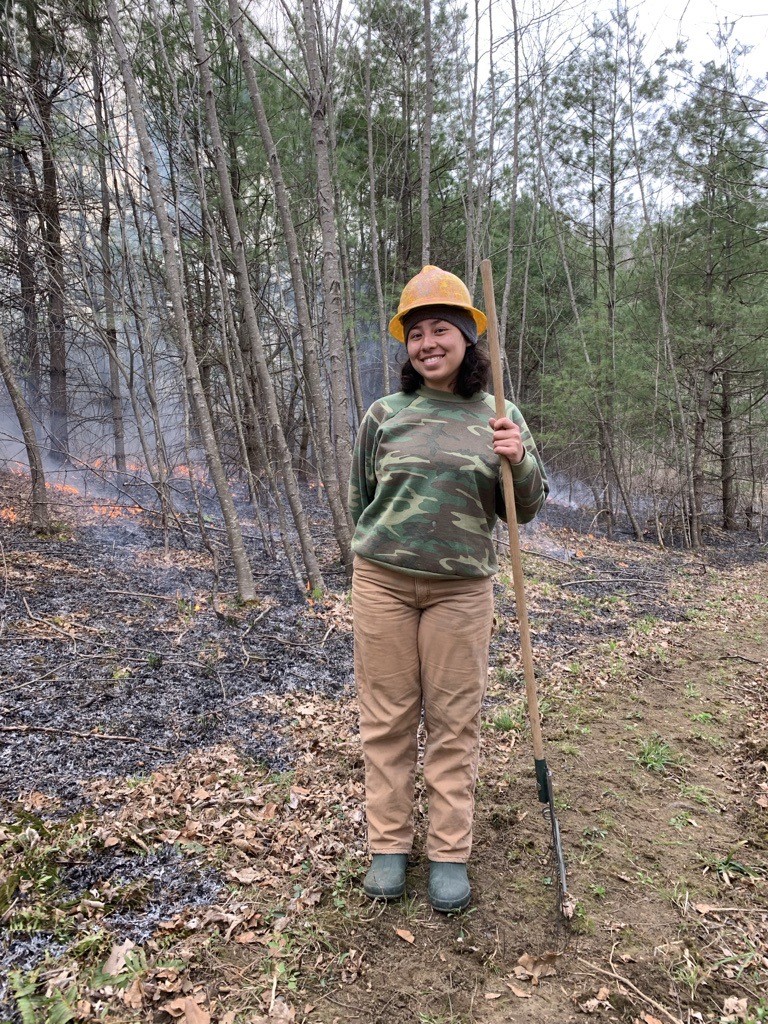
The Landscape Ecology lab is proud to welcome Leah Andino as Research Associate who completing her MS research at Yale School of the Environment. Andino will lead our crew of technicians in field research and support the lab’s growing drone and remote sensing research. Welcome, Leah!
NAFEW: Hurricane Ecology and Management (Organized Session)
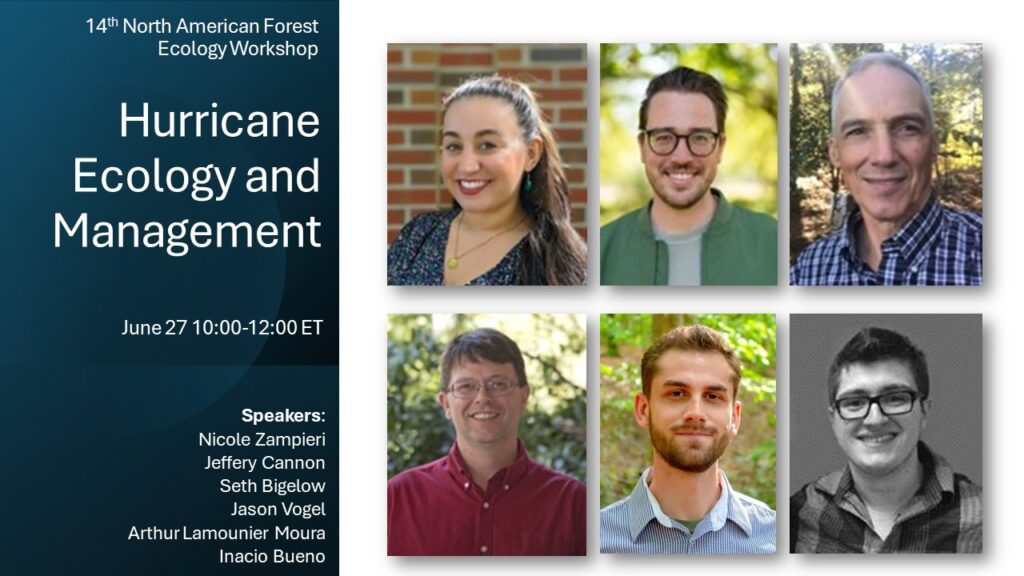
The Landscape Ecology lab will be hosting an organized session on Hurricane Ecology and Management at the 14th North American Forest Ecology Workshop (NAFEW) in Asheville, NC on June 24-27, 2024. Our organized session, titled “Hurricane ecology and management in tropical cyclone-prone forests of the US” will feature researchers working on the ecological effects of hurricanes and how to mitigate and measure hurricane risk and impacts to guide conservation efforts.
New study: Precipitation can increase stability of some trees in wind storms
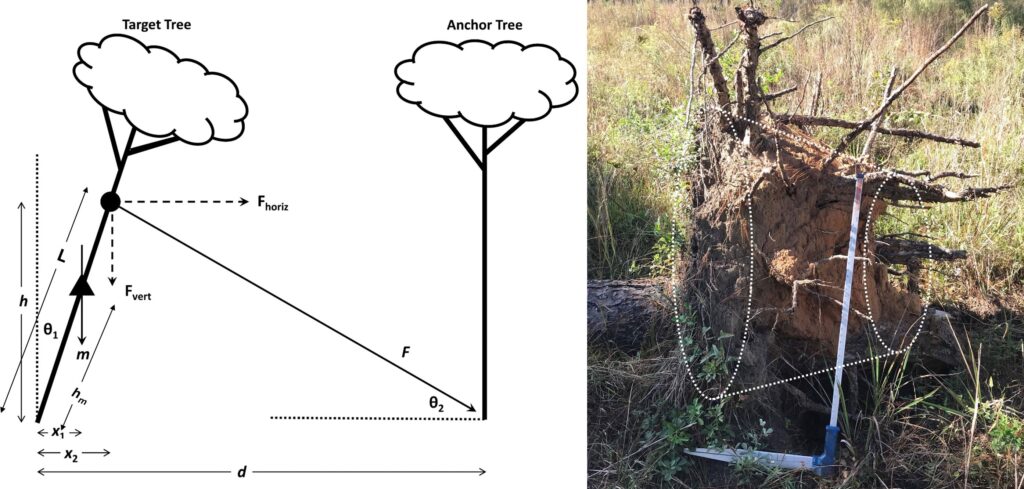
Root anchorage is one of the main drivers of tree stability in wind storms. Tree winching help to understand forces that tree can withstand. We compared stability of two pine species after wetting the soil and uncovered that wet soil can actually *increase* tree strength by add weight to the root mass. This experiment helped resolve a paradox of soil moisture by distinguish the opposite effects of long-term and short-term soil moisture.